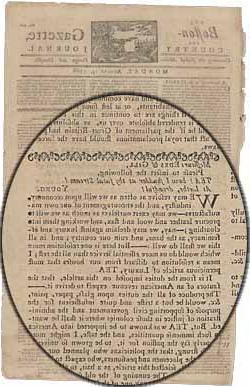"Messieurs Edes & Gill, Please to insert the following, Tea! How I shudder at thy fatal Stream!"
To order an image, navigate to the full
display and click "request this image"
on the blue toolbar.
-
Choose an alternate description of this item written for these projects:
- Main description
[ This description is from the project: Coming of the American Revolution ]
In this anonymous letter to the editors of a Boston newspaper published in August 1768, readers are implored to avoid consuming tea. The writer advocates boycotting tea as a way to save consumers money, adding that if fewer colonists paid the expensive duty on tea, Great Britain would notice as their tax revenue decreased.
The Politics of Tea
Although patriots target many goods in their non-importation and non-consumption campaigns, one article garners scrupulous attention. Long before the passage of the Townshend Acts tea is singled out as an evil weed. It's expensive (when legally imported from England) and it's strictly a luxury item. It is the most commonly used item taxed by the Townshend Acts, a fact that gives patriots even more cause to discourage its use. Americans are encouraged to abandon their English tea in favor of local substitutes, and towns compete with one another to gather signatures on anti-tea petitions. Patriots and Parliament alike recognize tea's potential as a political weapon.
To examine all four pages of this newspaper, please see the online display of The Boston-Gazette and Country Journal, 15 August 1768.
Questions to Consider
1. According to the author, why did Parliament include tea in the list of duties taxed under the Townshend Acts?
2. What was the duty on one pound of tea prior to the Townshend Acts? What is the duty after the Acts take effect? Why is the author concerned about this change in the duty?
Further Exploration
3. Why would patriots be especially interested in asking women to abstain from buying/drinking tea imported from England?
4. Does the boycott have any effect on the quantity of tea shipped to America? By what percentage do tea sales in New England either increase or decrease during the boycott (1768-1770)? To help answer this question review the tables in the appendix to Benjamin Woods Labaree's book The Boston Tea Party.

